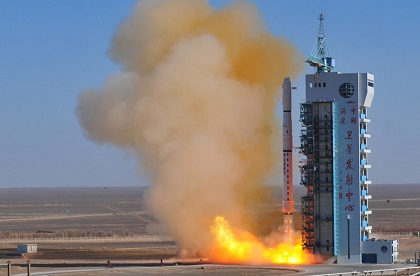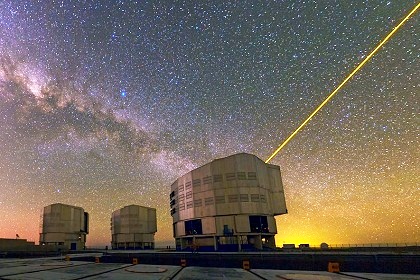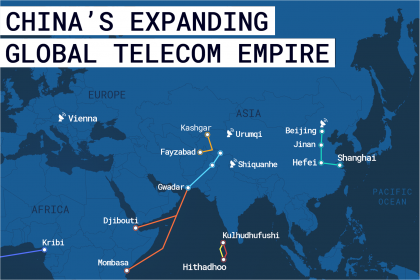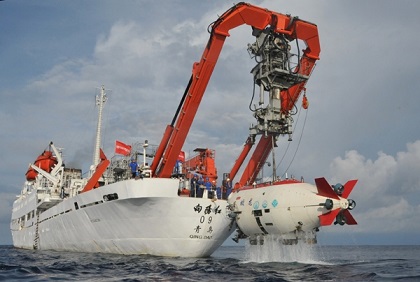 Courtesy: National Museum of the U.S. Air Force
Courtesy: National Museum of the U.S. Air Force
Washington is planning to integrate its military space operations. Each arm of the United States Armed Forces has had a space command until now but uniting these discrete units into a new Space Force is a step ahead. The U.S.’ big-picture ambition is ‘full spectrum battle-space dominance’ and the contest to achieve it has implications for the defence and space industry
 Courtesy: Chinanews
Courtesy: Chinanews
Pakistan is about to launch two military satellites in June with aid from China. It is pursuing its renewed space programme, using the same clandestine tactics it used for developing its atomic programme
 Courtesy: ESO/G. Lombardi (glphoto.it)
Courtesy: ESO/G. Lombardi (glphoto.it)
Modern astronomy will stimulate scientific, technological, economic and human resource development—all high priorities for India. New Delhi should exploit its proximity to the ‘Roof of the World’ to advance its geopolitical interests
 Courtesy: Gateway House
Courtesy: Gateway House
China is steadily deploying state-of-the-art communications systems to connect its strategic and economic assets in Asia. It is then linkingthe Asian mainland to Africa, and Africa to South America. The investment spree is rapidly making Beijing a major player in global telecommunications – and ‘informationisation warfare’.
 Courtesy: Wikipedia
Courtesy: Wikipedia
The year-old UDAN Regional Connectivity Scheme has mobilised India’s aviation sector, helping consolidate a domestic market for its indigenous commercial aircraft. It can similarly nurture strategic emerging industries – if a national transportation policy is put in place
 Courtesy: Pixabay/Comfreak
Courtesy: Pixabay/Comfreak
The two countries’ proposal to carry out a robotic sample-return mission to the Moon in the 2020s is a laudable attempt at catching up with Beijing’s rather more advanced lunar agenda. And there are many lessons that Japan can offer India
 Courtesy: Wikipedia
Courtesy: Wikipedia
India is missing from the new wave of industrialisation that the space powers – both well-established and new – are ushering in. New Delhi must use the Indian Space Research Organisation smartly to create a competitive industrial base of avant-garde technologies, not regard it a mere revenue generator
 Courtesy: Pixabay
Courtesy: Pixabay
The Indian Space Research Organisation’s (ISRO) recently announced intention to
visit the planet Venus – the third celestial destination for India after the Moon and Mars – is a significant academic pursuit. But can New Delhi use this opportunity to develop cutting-edge trans-disciplinary technologies and advance its space diplomacy?
 Courtesy:
Courtesy:
Chaitanya Giri wrote an article on Science and Technology for The Sunday Guardian
 Courtesy: China Daily
Courtesy: China Daily
The People’s Liberation Army Navy (PLAN) has been steadily building its underwater infrastructure since the 1980s to undertake energy-efficient, long-range and dual-purpose reconnaissance and exploration missions. While the Indian Navy’s superiority is unquestionable, New Delhi should provide it the crucial futuristic paraphernalia












